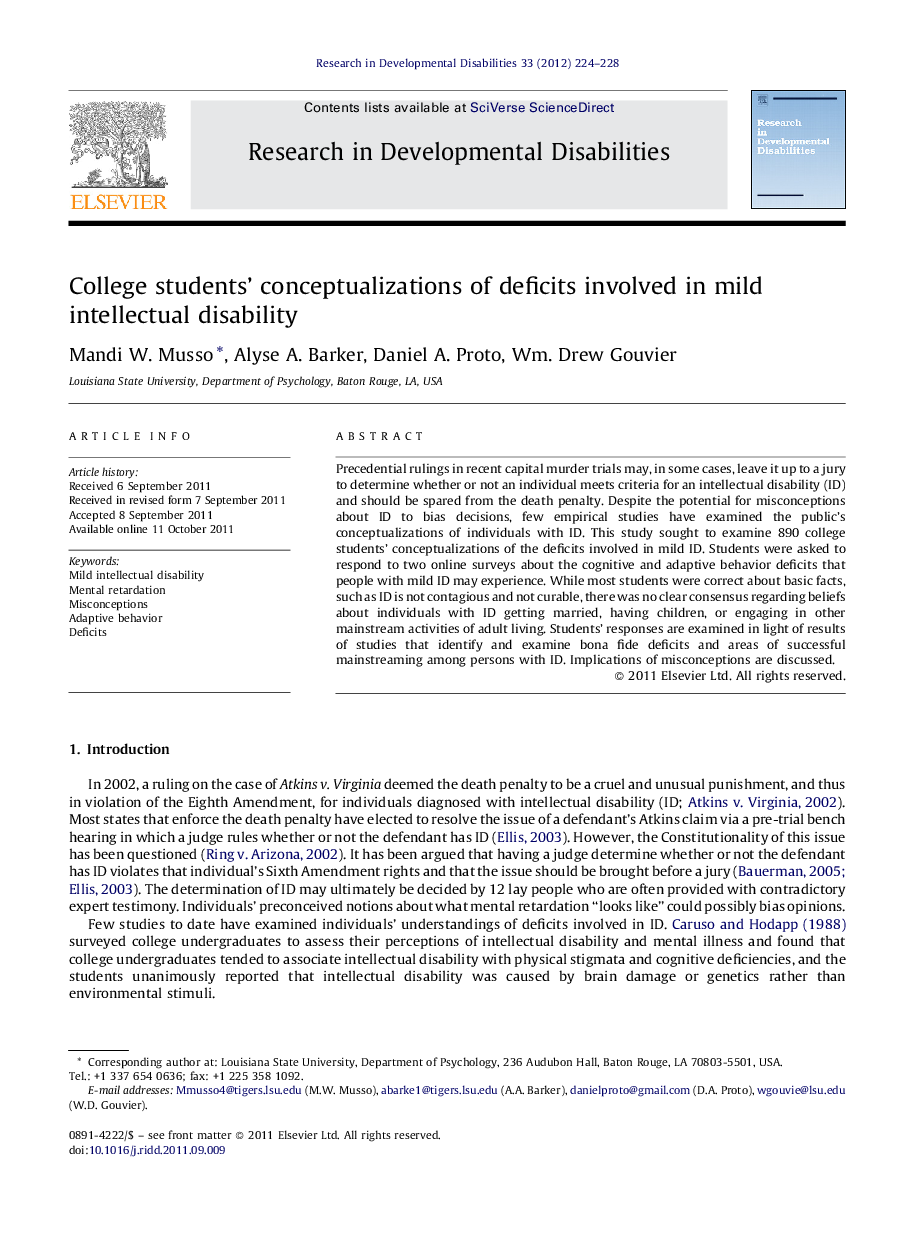| کد مقاله | کد نشریه | سال انتشار | مقاله انگلیسی | نسخه تمام متن |
|---|---|---|---|---|
| 371645 | 621935 | 2012 | 5 صفحه PDF | دانلود رایگان |

Precedential rulings in recent capital murder trials may, in some cases, leave it up to a jury to determine whether or not an individual meets criteria for an intellectual disability (ID) and should be spared from the death penalty. Despite the potential for misconceptions about ID to bias decisions, few empirical studies have examined the public's conceptualizations of individuals with ID. This study sought to examine 890 college students’ conceptualizations of the deficits involved in mild ID. Students were asked to respond to two online surveys about the cognitive and adaptive behavior deficits that people with mild ID may experience. While most students were correct about basic facts, such as ID is not contagious and not curable, there was no clear consensus regarding beliefs about individuals with ID getting married, having children, or engaging in other mainstream activities of adult living. Students’ responses are examined in light of results of studies that identify and examine bona fide deficits and areas of successful mainstreaming among persons with ID. Implications of misconceptions are discussed.
► We surveyed college students about their conceptualization of deficits involved in mild intellectual disability (MID).
► We discuss the students’ responses in light of limited literature in this area.
► College students have numerous misconceptions about degree of deficits involved in MID.
► Such misconceptions may have profound effects in criminal forensic settings.
► There is need for increased public education about MID.
Journal: Research in Developmental Disabilities - Volume 33, Issue 1, January–February 2012, Pages 224–228